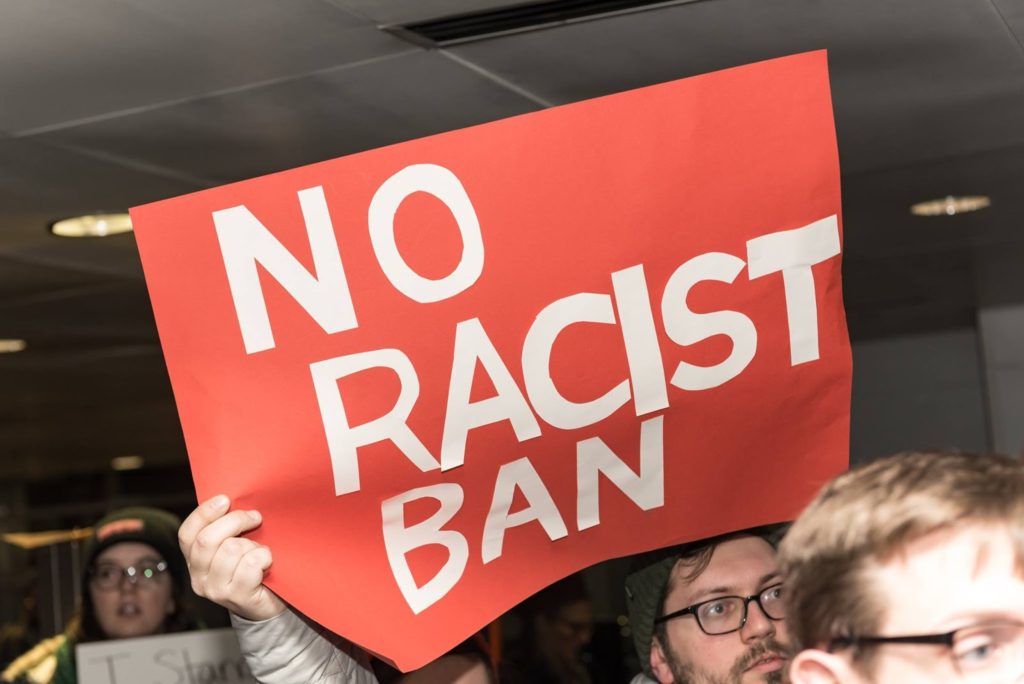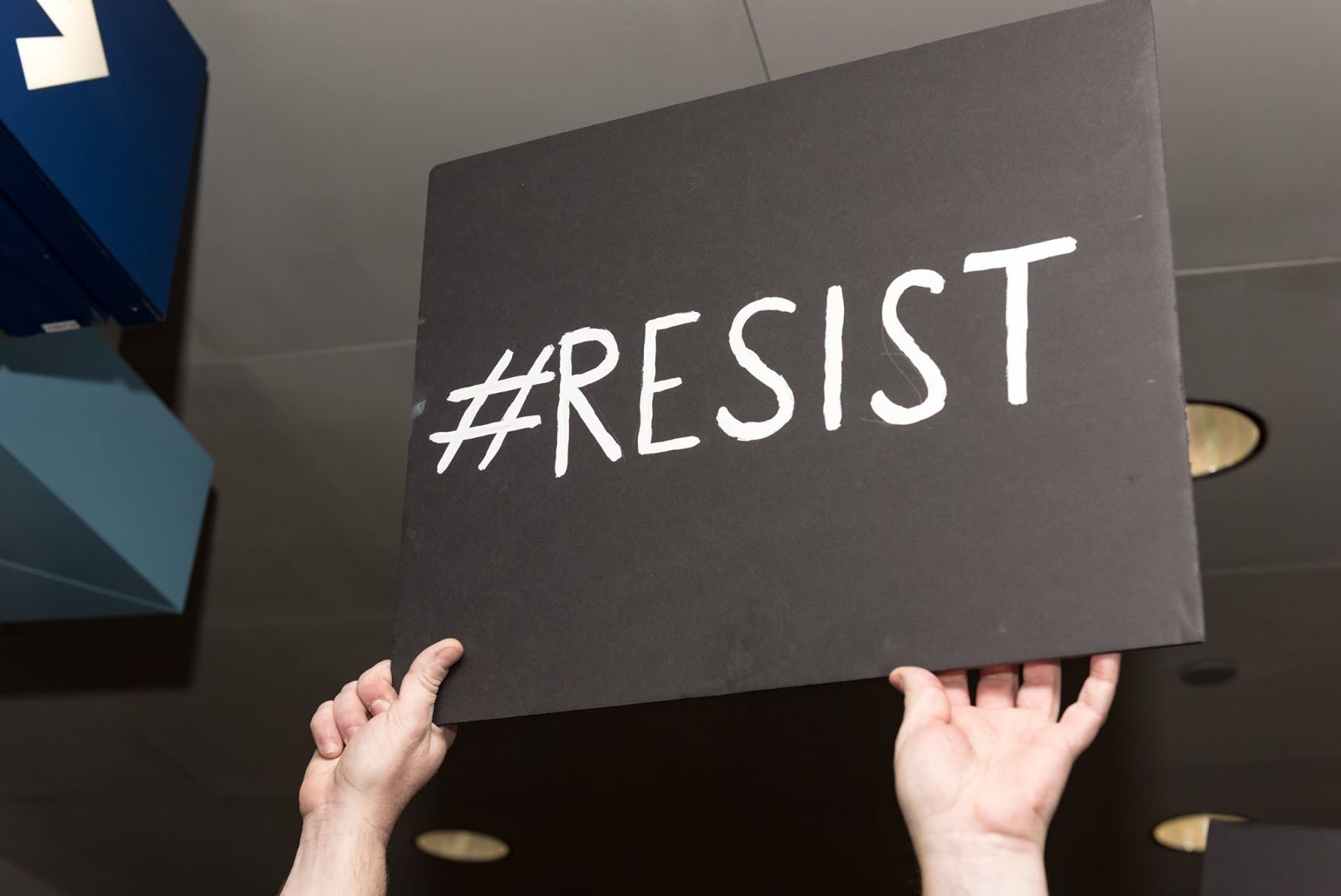Wherever you see it, challenge the normalization of bans on immigration and refugee resettlement. Do not ignore the rhetoric of the people around you. Do not think that this is OK. Do not think that this can go unchallenged. Here are some things to remember and steps to take as we move forward–beyond just the Muslim ban:
1. This is not the time to play the model minority contest | Technically, it never is time to play that game. But if your homeland has not yet been “officially” banned, do not wait until it is to come out and join the movement. And remember: whether or not this iteration of the Muslim ban names you directly, we are seeing increased detainment, interrogation and harassment of all Muslim and Muslim-perceived people (yes, more than you already faced at the airport) since the first executive order. If you’re Muslim, you’re sort of already on the list. So come out.
2. Skill-share | We need this movement to be long-term. Experienced movement organizers should be training young people with more energy and capacity to learn about what is happening, take up leadership, and organize.
3. Make your work accessible | We already know many of those affected by state-based violence — especially when it comes to immigration — have limited English literacy. Give “know your rights” trainings in different languages, translate your materials (and the text of the Muslim ban itself) into your mother tongue, connect pro bono lawyers and other resources to the community. Mass distribute in mosques, community centers, WhatsApp group messages — identify the spaces your people occupy and take the information to them.
4. Do not make compromises | Do not compromise your values for the sake of having an extra white person join your protest.
5. Find gaps in organizing and seek to fill them, rather than compete | While everyone is running to be the first to file a federal lawsuit, work to identify and meet current and anticipated immediate needs. Does your community need political education? Do immigrants and refugees who did make it through Customs and Border Patrol need support in resettlement? Do lawyers at the airport need translators?
6. As always, be intersectional | Half of the officially banned countries are Black-majority countries. Black, Muslim immigrants and refugees are oftentimes left out from both Black and Muslim spaces, so be intentional about centering those who are on the margins of the margins. Beyond making sure not to exclude your own people, keep in mind that Customs and Border Patrol, US Immigration and Customs Enforcement, the Department of Homeland Security, municipal law enforcement and other violent institutions that target people of color are just different enforcement mechanisms with the same goal: upholding white supremacy. You cannot succeed by ignoring those relationships.
And for our non-Muslim allies:
1. Show up | Support the ongoing efforts of Muslim-led organizing in resisting the ban. If you’re an immigration lawyer, volunteer. If you’re a teacher, connect your Muslim students to resources, and talk to your class about what is happening. If you’re a journalist, document the movement. Share the work of Muslim artists, writers, creators, organizers and scholars. Hold your racist friends and family accountable.
2. Do not claim an identity that is not yours | No, you are not #Muslimtoo — and claiming such only covers the voices of actual Muslims trying to share their real experiences. Rather, listen to the leadership, direction and experiences of Muslims who are speaking out and up. (More on this also in my guide to allyship post-Trump)
3. Be careful not to perpetuate anti-Muslim undertones in your conversations | When talking about the Muslim ban, do not challenge it by saying there have been “no fatal attacks by immigrants from countries listed in the Muslim ban.” While that is true, this not only provides a justification for banning immigration from countries that have had someone commit violence, but also legitimizes collective punishment. Also, we are not all immigrants — that concept erases the histories of Indigenous people native to this land and Black people who were forcibly enslaved and brought here. Moreover, a Muslim refugee from a country the United States destabilized is not the same as an immigrant from the UK who is here getting a PhD. Another thing: Stop draping American flags over our hijabs.
4. Donate | Support the work of your local Muslim-led organizations supporting their people on the ground and in the courtroom.
We are continuously receiving reports of families being ripped apart and lives being completely devastated because of this ban on Muslims.
Do not let this become the new normal.
Originally written for Truthout.org.
Copyright, Truthout.org. Reprinted with permission


